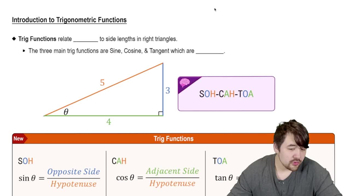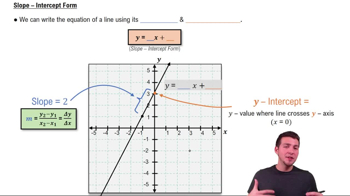Textbook Question
Determine the following limits.
lim x→π/2 1/√sin x − 1 / x + π/2
 Verified step by step guidance
Verified step by step guidance Verified video answer for a similar problem:
Verified video answer for a similar problem:



 5:21m
5:21mMaster Finding Limits by Direct Substitution with a bite sized video explanation from Patrick
Start learning